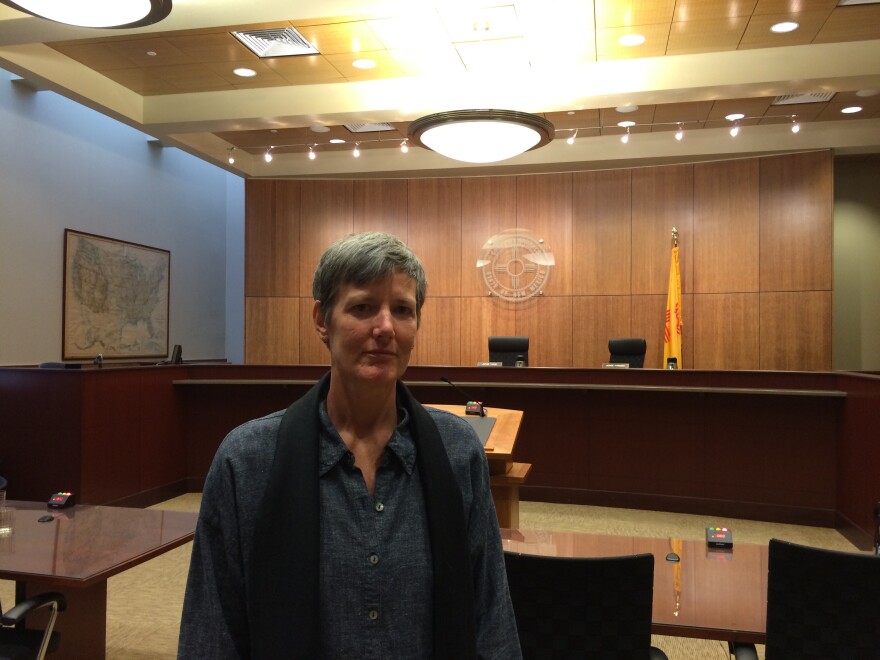In this era of modern medicine, the dying process can be prolonged. Can doctors legally prescribe fatal medications to terminally ill patients who request them?
That issue was at the heart of an Appeals Court hearing in New Mexico this week.
Over the last 40 years, intensive care units and advances in medicine have stretched out the final days of our lives. Sometimes recovery is possible. But in other cases, it becomes a question of comfort.
Stanley Hordes was in the packed Albuquerque courtroom Monday. "Four and a half years ago, I was diagnosed with Parkinson’s Disease. And my mom had it, and a former professor of mine had it," he said, "and I know that this does not have a very good end to it."
Hordes serves on the board of the New Mexico chapter of the ACLU, which helped file a lawsuit a couple of years ago requesting clarification of state law on aid in dying. It’s different than physician-assisted suicide and should be legal, they say, because it’s the patient who administers the medication.
"It gives us all hope that when our time comes," Hordes said, "we’ll be able to choose the manner with which we go—and the circumstances."
Aja Riggs is one of the plaintiffs in the case. She has uterine cancer that’s in remission, but if it returns, will likely be fatal. "You know, I thought about it for myself," she said. "I thought if I want to exercise some amount of control and choice at the end of my life and I don’t want to put the people around me who care about me who care about me in any danger of being seen as assisting somebody else’s death, I’m going to have to make those preparations on my own, in isolation, not talking to anybody else, and I may have to die alone."
But court isn’t where this should be decided, according to lawyer Scott Fuqua. He’s appealing last year’s decision in favor of aid in dying for the New Mexico Attorney General’s Office. He says it really comes down to two broad points. "The first is whether a person at the end of their life has a fundamental right to enlist the aid of a third party, here a physician, in bringing about the end of their life," he said.
A person could just stockpile medication, Fuqua argued before the court, a doctor doesn’t really need to prescribe a fatal dose.
"And the second has to do with the proper roles to be played by the Legislature and the judiciary in resolving these issues," Fuqua said.
The panel of judges hearing the appeal pointed out that if the courts make the call about aid in dying, there won’t be specific rules outlined for physicians and patients, the way there would be if the Legislature designs a law to handle this issue.

But Dr. Katherine Morris says physicians can help patients through these discussions—make sure they’re getting good care and that their fears and concerns are addressed. "It’s a very challenging thing for a physician to consider," she said. "It comes with a lot of soul searching, certainly on the part of us who have considered to either provide aid in dying or not. We, as a physician community, we know how to do this with some reliability and some safeguards in terms of there not being a bad event."
New Mexico wasn’t the first state to allow aid in dying. The Death With Dignity Act took effect in Oregon in 1997, and it’s become legal in three other states since.
Katherine Tucker with the Disability Rights Legal Center says the option has been comforting to patients who face the possibility of unbearable suffering. "We know from more than 17 years of experience in Oregon, that when patients have this choice, they often don’t take the medication," she said. "They obtain the medication. They put it in the medicine cabinet. They feel comforted to have it, but they don’t go on to take it, which is really interesting."
The Appeals Court will consider these arguments over the coming weeks. It’s hard to predict how long it will take for the judges to reach a decision.





